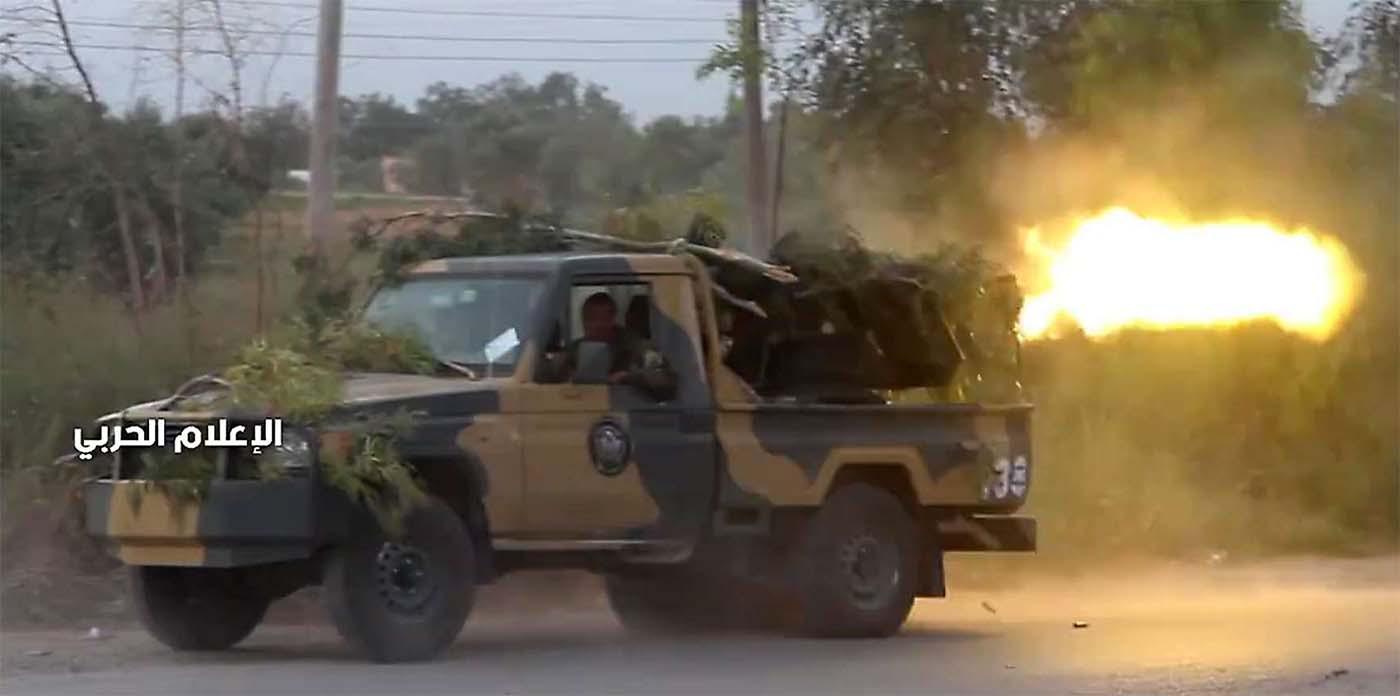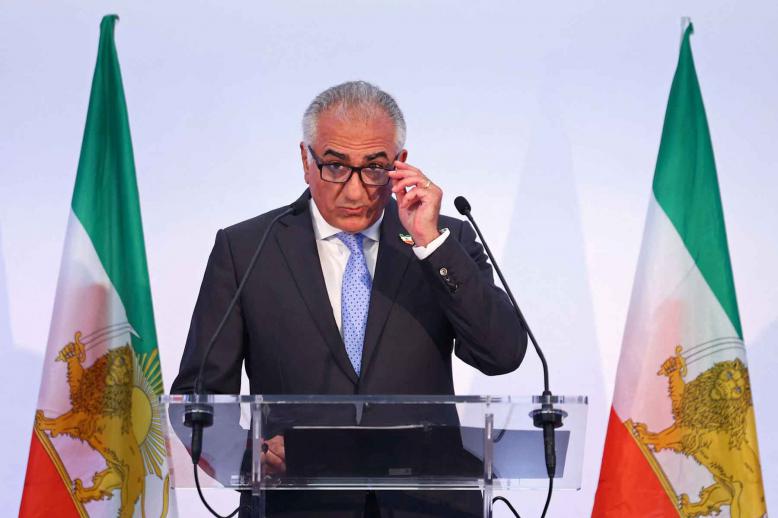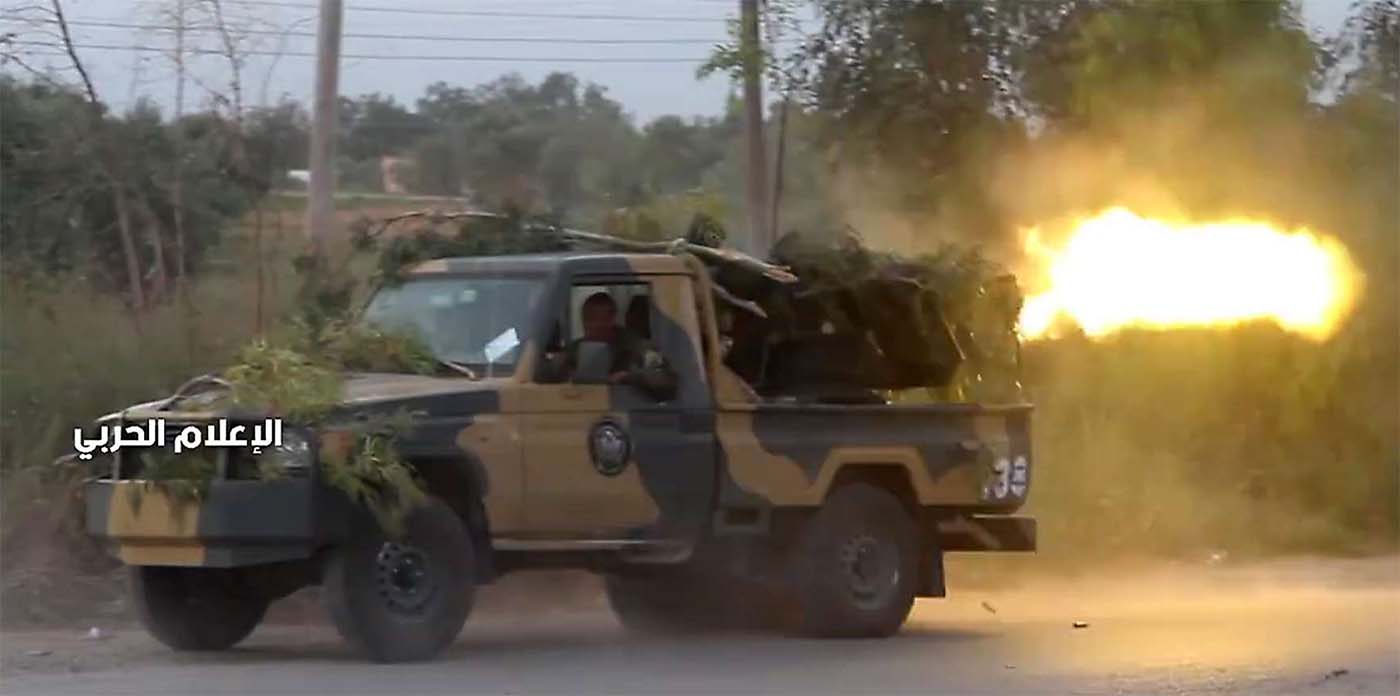US stance gives Haftar momentum in push to curb extremists in Tripoli
TUNIS — World powers, including the United States, seem intent on not foreclosing on the option that the Libyan National Army could, if successful in its Tripoli campaign, curb the rule of extremist-allied militias in Libya.
The White House said US President Donald Trump spoke by phone to Libyan Field-Marshal Khalifa Haftar, commander of the Libyan National Army (LNA), to discuss “ongoing counterterrorism efforts.” A White House statement April 19 said Trump “recognised Field-Marshal Haftar’s significant role in fighting terrorism and securing Libya’s oil resources and the two discussed a shared vision for Libya’s transition to a stable, democratic political system.”
Jalel Harchaoui, a research fellow at the Clingendael Institute think-tank in The Hague, told the Associated Press the Trump phone call was tantamount to supporting Haftar’s operation and thus is “creating an environment where a military intervention by foreign states, like Egypt, is likelier.”
Diplomatic efforts reflected French, Russian and American reluctance to go along with the drive led by the British and the Italians, with the support of Qatar and Turkey, to block the advance by the LNA towards seizing control of Tripoli.
UN Envoy to Libya Ghassan Salame repeatedly expressed alarm over the humanitarian consequences of the fighting.
Both the United States and Russia said they objected to a draft UN Security Council resolution calling for a ceasefire in Libya. The Security Council on April 5 called on all warring parties to de-escalate the conflict but did not issue a formal statement because of Russian objections to singling out the LNA for blame. On April 19, Washington also objected.
A senior UN diplomat told Reuters the United States was “trying to evaluate all the scenarios and work out which one is in America’s best interest and just hasn’t done that yet.”
Efforts by Qatar, Turkey and former colonial power Italy seem to have encountered unexpected headwinds because of the perception the Government of National Accord (GNA) was a disparate array of armed gangs, militias and Islamic militants.
Videos of battles showed militia fighters on global lists of wanted terrorists and human traffickers. They are suspected of wreaking havoc in Tripoli since Islamists took over the city after they lost elections in 2014.
Calculations by the Tripoli government and some European powers led to the encroachment of the militias in Tripoli. Wolfram Lacher, a Libya expert at the German Institute for International and Security Affairs, told the Associated Press that Tripoli militias had infiltrated GNA institutions to steal state resources. He described the militias as “criminal networks straddling business, politics and administration.”
The Associated Press reported that, in 2017, Italy agreed with GNA leader Libyan Prime Minister Fayez al-Sarraj to pay militias to prevent migrants from leaving from Sabratha, even though security officials warned that the groups would use the aid to buy arms and recruit fighters.
By aligning themselves with the Islamist camp in Tripoli, Qatar and Turkey unleashed in Libya their antagonism against Egypt, the United Arab Emirates and Saudi Arabia, which view Haftar as a block against Islamist destabilisation.
Paris has lent support to Haftar, whose help in southern Libya was crucial for France’s antiterrorism effort in the Sahel as well as for the security of neighbouring Mali and Niger, which are main sources of French uranium imports.
Experts said France and Russia eye expanding business and energy ties in a post-conflict Libya. This includes oil resources, which are mainly in areas virtually all controlled by Haftar’s troops.
Wary of the consequences of a swift victory by the LNA, Haftar’s rivals stepped up military attacks in tandem with a diplomatic campaign focused on the human toll of the fighting while playing down the issue of the make-up of the forces battling the LNA.
LNA’s commanders sounded upbeat about their chances of reaching the heart of Tripoli soon. “We expect to conclude the liberation of the capital just before the beginning of Ramadan (May 5),” LNA Lieutenant-General Faouzi al-Mansouri said April 17.
Military experts said that a rapid military conclusion of the battle for Tripoli is necessary for Haftar’s forces, which rely on a long supply line, to avoid getting bogged down in an intractable showdown with militias entrenched in heavily populated areas.
Fighting in such areas has led to a recurring blame game. At least four people were killed April 17 in heavy shelling in Tripoli’s southern Abu Salim district. Forces allied to Tripoli accused the LNA of firing rockets into residential areas while the LNA said in a statement it had nothing to with the shelling and accused a Tripoli-based group.
“The areas shelled are located beyond the range of our forces. They were shelled by 170 (mm) artillery launchers manned by the terrorist Islamist militias,” countered LNA spokesman Ahmed Mismari.
Lamine Ghanmi is a veteran Reuters journalist. He has covered North Africa for decades and is based in Tunis.
Copyright ©2019 The Arab Weekly







